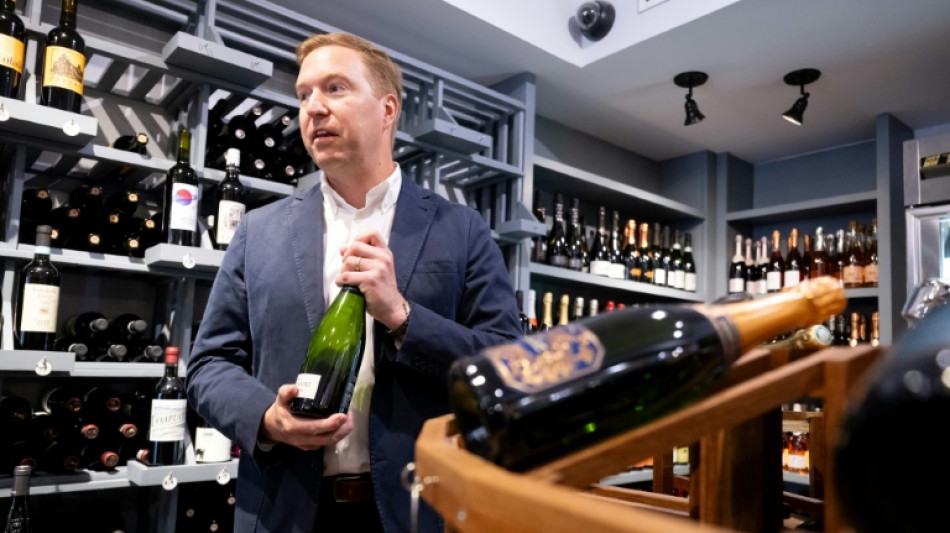

US wine sellers left in limbo despite EU tariff deal
At a wine shop in Washington's Capitol Hill neighborhood, bottles sourced from Europe are becoming costlier to import -- and soon, pricier for customers to buy, the owner says -- thanks to a resident just down the road in the White House.
President Donald Trump has slapped a 15-percent tariff on many goods coming from the European Union, as part of a deal the bloc negotiated to avoid even steeper levies.
The continent's important wine and spirits industry hoped to have a carveout, but details released Thursday showed no exemption to the double-digit duty.
The new EU rate took effect this month, replacing a 10-percent levy Trump imposed in April on most trading partners. But even the lower tariff has forced importers to hike prices -- and retailers are feeling the pinch.
"Everybody's redoing their price books at this point," said Michael Warner, co-owner of wine boutique DCanter in Washington's Capitol Hill neighborhood.
He told AFP that price increases from importers and distributors became apparent around June, ranging from 10-15 percent.
Over 80 percent of wine in Warner's store is imported, with about two-thirds from Europe.
Businesses may have stocked up to mitigate a price shock from Trump's duties, but inventory is depleting.
As the euro strengthened against the dollar this year too, Warner said many importers "are seeing a 20-percent swing in their costs."
"As more and more importers are increasing their costs, we see that there will be more and more price increases, certainly in the next coming months and going into the holiday season," he said.
- No 'special treatment' -
EU negotiators have sought to exempt alcohol such as Irish whiskey and French champagne from Trump's tariffs, but their efforts have been fruitless so far.
The bloc's trade commissioner Maros Sefcovic maintained Thursday that "these doors are not closed forever," although the French wine exporters federation said it was "hugely disappointed" in the outcomes.
A White House official told AFP that the Trump administration "did not agree to any special treatment of EU alcohol" as part of the tariff deal, when asked about the final text of the pact this week.
US Wine Trade Alliance president Ben Aneff argues, however, that his country has "a huge economic surplus on the sale of wines from the EU."
The American wine industry generally operates in a tiered system, where foreign producers sell to importers, who then sell to distributors. They in turn sell to retailers and restaurants.
"For every dollar we spend in the European Union on wine, we make $4.52," Aneff said of the economic impact of the wine changing hands through the supply chain.
He estimates the United States buys some $5.3 billion worth of wine annually from the EU: "But that makes us about $24 billion in the United States."
The industry supports hundreds of thousands of jobs in importing and distribution, alongside tens of thousands of independent wine retailers -- who in turn sell to consumers.
"There's no guarantee there will be an exclusion but we do know it's something that the administration is considering seriously," Aneff said.
- 'Extraordinarily trying time' -
Harry Root, who operates a wine distribution and import company with his wife, said they have paid "more than $100,000 worth of tariffs already this year."
"We made less than $400,000 last year, so this is already like a 25-percent tax on our business," he said. His firm, Grassroots Wine, serves South Carolina and Alabama.
The funds to pay tariffs, according to Root, come from business capital that otherwise would have gone to wine makers, including dozens in the United States.
"It puts a big strain on our ability to support our American producers," he said.
US wine producers also rely on imported components ranging from bottles made in Asia to barrels from Europe -- and tariffs raise those costs too.
While Root has not laid off staff, he has delayed replacing workers who left -- departing from ambitious growth plans at the start of the year to expand the business.
"This is a really, extraordinarily trying time."
C.Azevedo--GBA


